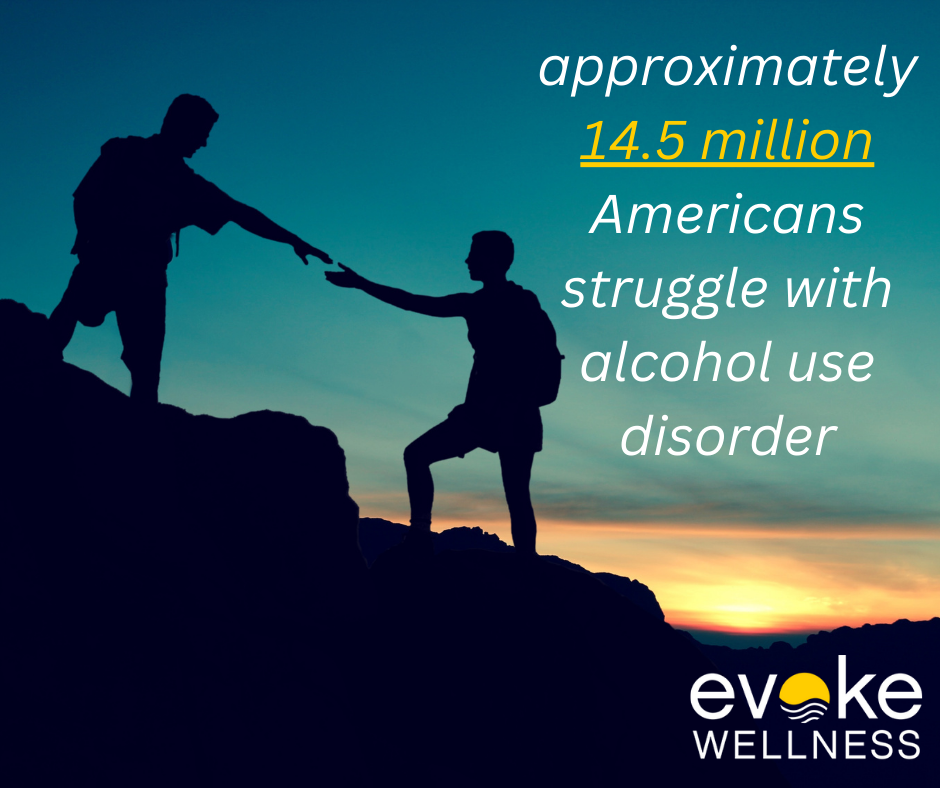Watching a loved one struggle with alcoholism can leave you feeling helpless and overwhelmed. But your support can make a world of difference in their journey to recovery. Recent statistics paint a sobering picture: over 14 million American adults battle alcohol use disorder, with only about 7% receiving treatment. As you navigate this challenging terrain, remember that your role is crucial. This guide will equip you with practical strategies to offer meaningful support, from recognizing the signs of alcoholism to fostering a supportive environment. By understanding the complexities of addiction and learning how to communicate effectively, you’ll be better prepared to help your loved one face this battle head-on.
Call us at (866)429-2960 today or reach out online.
Understanding Alcoholism and Its Effects
A Chronic Brain Disease
Alcoholism is a chronic brain disease characterized by compulsive alcohol use, loss of control, and a negative emotional state when not drinking. It affects brain function and behavior.
Widespread Impact
According to the National Institute on Alcohol Abuse and Alcoholism, an estimated 14.5 million people aged 12 and older had alcohol use disorder in 2019. Alcoholism impacts all aspects of life – health, work, relationships.
Long-Term Consequences
Prolonged alcohol abuse can lead to serious health issues like liver disease, heart problems, cancer risk, and brain damage. Understanding its profound effects is crucial for effective support.
Recognizing the Signs of Alcoholism
Physical Signs
- Slurred speech, lack of coordination. Inability to focus or think clearly. Frequent hangovers.
- Alcohol odor on breath. Flushed skin, broken capillaries on face.
Behavioral Changes
- Mood swings, irritability, aggressiveness. Withdrawal from family/friends.
- Drinking alone or in secrecy. Making excuses for drinking.
Other Signals
- Neglecting responsibilities at work, school, home. Legal problems related to alcohol.
- Engaging in risky behaviors like drunk driving. Continuing to drink despite the consequences.
Recognizing these telltale signs is crucial for offering timely support to a loved one battling alcoholism. If multiple signs are present, it may indicate alcohol dependence requiring professional help.
Approaching Your Loved One About Their Drinking
Prepare Yourself
Mentally brace yourself for a difficult conversation. Approach with empathy – addiction is a disease, not a choice. Avoid judgment or confrontation.
Choose the Right Time
Look for a calm, private moment when your loved one is sober. Avoid discussing it when they’ve been drinking or are hungover.
Use “I” Statements
Express how their drinking makes you feel using “I” statements like “I’m worried when…” This prevents them from feeling attacked.
Offer Support
Make it clear you want to help, not criticize. Suggest rehab options or support groups you’re willing to assist with. With care and compassion, recovery is possible.
Encouraging Your Loved One to Get Help
Approach With Empathy
Alcoholism is a disease, not a choice. Approach your loved one with compassion, not judgment. Understand their struggle and show you care about their well-being.
- Listen without preaching or criticizing
- Use “I” statements to express concern
- Offer to attend a support group meeting together
Provide Treatment Options
Research alcohol treatment programs in your area. Have specific options ready to discuss calmly when your loved one is sober. Offer to assist with logistics.
- Inpatient rehab centers
- Intensive outpatient programs
- Support groups like AA
- Counseling or therapists specializing in addiction
Set Boundaries
While supporting recovery, you must also protect yourself. Make it clear that alcohol abuse cannot be enabled, and set firm boundaries you’ll enforce.
- No money for alcohol
- No housing them if drinking
- Calling emergency services if safety is at risk
Finding the Right Treatment Options
Professional Support
Seeking professional help through counseling, therapy, or rehab programs can provide expert guidance and support. Look for accredited facilities with evidence-based treatments tailored to individual needs.
- Inpatient or residential programs
- Outpatient counseling and support groups
- Medication-assisted treatments
Holistic Approaches
Complement professional care with holistic practices that address mind, body, and spirit. These can aid recovery and promote overall well-being.
- Exercise and nutrition plans
- Mindfulness practices like meditation
- Spiritual or faith-based support
Family Involvement
Family support plays a crucial role. Engage loved ones through family therapy, education on addiction, and healthy communication strategies. Their understanding and participation can significantly impact recovery success.
Supporting Your Loved One Through Recovery
Be Patient and Understanding
Recovery is a long journey with ups and downs. Offer unwavering support without judgment – alcoholism is a disease, not a choice.
Attend Counseling Together
Family therapy educates you on addiction’s challenges. It strengthens communication and coping strategies as you walk this path together.
Set Healthy Boundaries
While supporting recovery, you cannot enable destructive behavior. Compassionately enforce boundaries to protect yourself and encourage positive change.
Identifying and Avoiding Relapse Triggers
Understand Common Triggers
Relapse often stems from certain people, places or emotions that can reignite cravings. Common triggers include being around others drinking, feeling stressed, or revisiting old hangouts.
Develop Coping Strategies
- Make a list of your loved one’s specific triggers
- Have a plan to avoid or healthily cope with each, like removing alcohol from the home or practicing relaxation techniques
Create a Sober Support System
Surround them with understanding friends and family who can provide encouragement during tough times. Joining a recovery group allows sharing experiences with others battling alcoholism.
Ongoing Support and Resources for Loved Ones
Support Groups
Joining a support group allows you to connect with others going through similar experiences. Share coping strategies, find understanding, and gain strength from each other.
- Al-Anon Family Groups
- Adult Children of Alcoholics
- SMART Recovery Family & Friends
Educational Resources
Educate yourself on alcoholism and its effects. Understanding this disease can provide insight into your loved one’s struggles and how to support their recovery journey.
- Substance Abuse and Mental Health Services Administration (SAMHSA)
- National Institute on Alcohol Abuse and Alcoholism
Professional Counseling
Don’t hesitate to seek counseling for yourself. Having an impartial listener can help process complex emotions surrounding your situation. Therapists provide tools for self-care too.
Conclusion
In supporting your loved one’s battle against alcoholism, remember that recovery is a journey, not a destination. Your unwavering support, patience, and understanding are invaluable assets in this challenging process. By educating yourself, setting boundaries, and encouraging professional help, you’re providing a strong foundation for their recovery. Recent statistics show that approximately 14.5 million Americans struggle with alcohol use disorder, but with proper support, many achieve lasting sobriety. As you navigate this path together, celebrate small victories and remain hopeful. Your love and support can make a significant difference in your loved one’s life, helping them reclaim their health, happiness, and future. Stay strong, stay informed, and never underestimate the power of your support in their recovery journey.
Begin Your Journey with Evoke Wellness
If you or a loved one is considering treatment, Evoke Wellness invites you to contact us. Our compassionate team is ready to answer your questions, discuss your needs, and help you take the first steps toward recovery. At Evoke Wellness, you will find more than just a treatment program – you’ll discover a community dedicated to your wellness and success. Together, let’s embrace the journey to recovery and the promise of a new beginning. Call us at (866)429-2960 today or reach out online.



